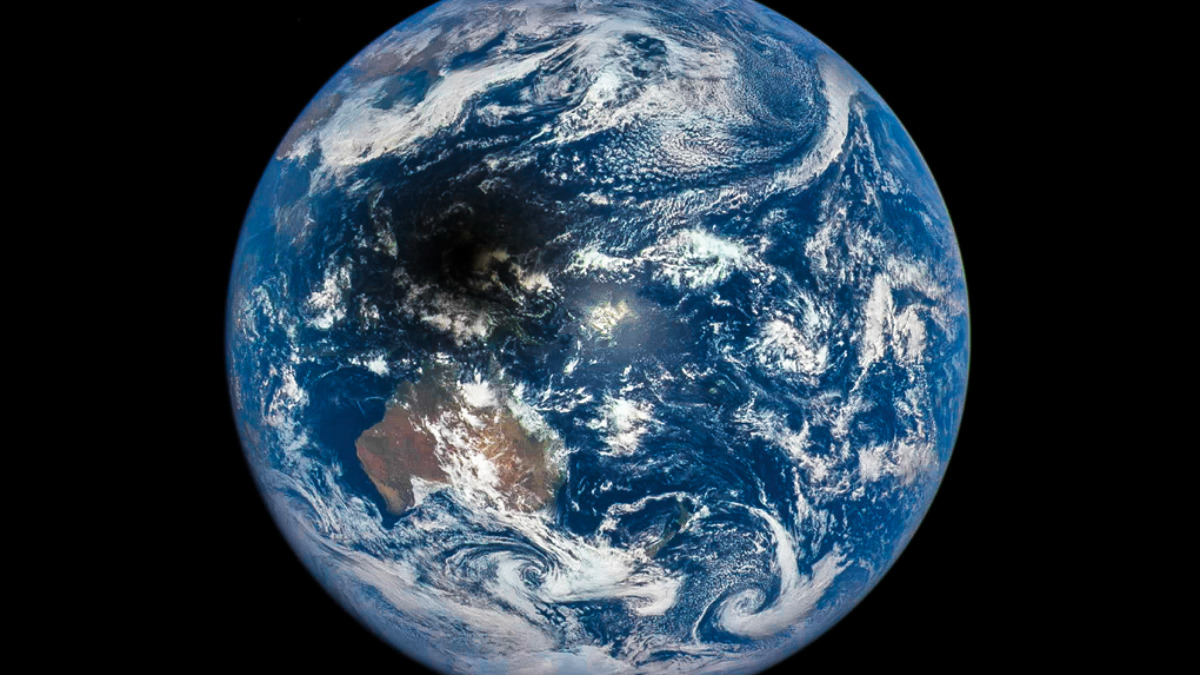Why three times more asteroids are hitting Earth
New study shows frequency of impacts jumped just before the dinosaur age

A free daily email with the biggest news stories of the day – and the best features from TheWeek.com
You are now subscribed
Your newsletter sign-up was successful
Planet Earth has been hit by more asteroids in the past 290 million years than in the previous 700 million, according to new research.
Or to put it another way, the rate of hits has nearly tripled since the dinosaurs first roamed, researchers say. The findings mark a major breakthrough for scientists who have been trying to determine the rate at which foreign objects hit Earth “for decades”, CNN reports.
Their effort had been hamstrung by atmospheric and environmental effects on our planet that have resulted in many of the earliest impact craters being eroded and erased.
The Week
Escape your echo chamber. Get the facts behind the news, plus analysis from multiple perspectives.

Sign up for The Week's Free Newsletters
From our morning news briefing to a weekly Good News Newsletter, get the best of The Week delivered directly to your inbox.
From our morning news briefing to a weekly Good News Newsletter, get the best of The Week delivered directly to your inbox.
However, in a study outlined in a newly published paper in journal Science, researchers at the University of Toronto used Nasa data on impact craters on the surface of the Moon to calculate the asteroid strike rate of Earth.
“As neighbours, the Earth and Moon have experienced similar rates of asteroid strikes over the course of the Solar System’s history,” explains science news site Gizmodo.
And impact craters on the Moon’s surface have remained almost untouched since they were first formed, thanks to its comparative lack of atmosphere and tectonic activity.
The Moon is like “a time capsule for events that happen in our corner of the Solar System”, says study co-author Sara Mazrouei, a planetary scientist at the Canadian university.
A free daily email with the biggest news stories of the day – and the best features from TheWeek.com
After dating the Moon craters, the team worked out that prior to about 290 million years ago, Earth suffered an asteroid strike only around once every three million years, but that the rate has since risen to once every million years.
The Guardian says the figures are based on craters at least 10km (6.2 miles) wide that occurred within the last billion years.
Of a total 96 such impact craters, 50 were found to date back no further than the beginning of the dinosaur age, the newspaper adds.
The reasons for this significant increase are not fully understood, although the research suggests the heightened impact rate could have been caused by asteroid belt disturbances that sent space rocks hurtling towards Earth.
“Perhaps an asteroid family was broken up in the asteroid belt,” Mazrouei said.
Vice magazine’s Motherboard says that “this shift probably affected Earth’s life, given the havoc that large impacts create on biological systems”.
Indeed, The Guardian suggests that “the dinosaurs may have been unfortunate in evolving” when they did - “just as the odds of being wiped out by a stray asteroid were ramping up”.
“[Dinosaurs] as a species were particularly vulnerable to large impacts from the get-go, more so than earlier animal groups,” says Tom Gernon, an Earth scientist at the University of Southampton who worked on the study.
“It’s perhaps fair to say it was a date with destiny for the dinosaurs - their downfall was somewhat inevitable given the surge of large space rocks colliding with Earth.”
-
 How the FCC’s ‘equal time’ rule works
How the FCC’s ‘equal time’ rule worksIn the Spotlight The law is at the heart of the Colbert-CBS conflict
-
 What is the endgame in the DHS shutdown?
What is the endgame in the DHS shutdown?Today’s Big Question Democrats want to rein in ICE’s immigration crackdown
-
 ‘Poor time management isn’t just an inconvenience’
‘Poor time management isn’t just an inconvenience’Instant Opinion Opinion, comment and editorials of the day
-
 Nasa’s new dark matter map
Nasa’s new dark matter mapUnder the Radar High-resolution images may help scientists understand the ‘gravitational scaffolding into which everything else falls and is built into galaxies’
-
 Moon dust has earthly elements thanks to a magnetic bridge
Moon dust has earthly elements thanks to a magnetic bridgeUnder the radar The substances could help supply a lunar base
-
 How Mars influences Earth’s climate
How Mars influences Earth’s climateThe explainer A pull in the right direction
-
 The ‘eclipse of the century’ is coming in 2027
The ‘eclipse of the century’ is coming in 2027Under the radar It will last for over 6 minutes
-
 NASA discovered ‘resilient’ microbes in its cleanrooms
NASA discovered ‘resilient’ microbes in its cleanroomsUnder the radar The bacteria could contaminate space
-
 Artemis II: back to the Moon
Artemis II: back to the MoonThe Explainer Four astronauts will soon be blasting off into deep space – the first to do so in half a century
-
 The mysterious origin of a lemon-shaped exoplanet
The mysterious origin of a lemon-shaped exoplanetUnder the radar It may be made from a former star
-
 The 5 biggest astronomy stories of 2025
The 5 biggest astronomy stories of 2025In the spotlight From moons, to comets, to pop stars in orbit